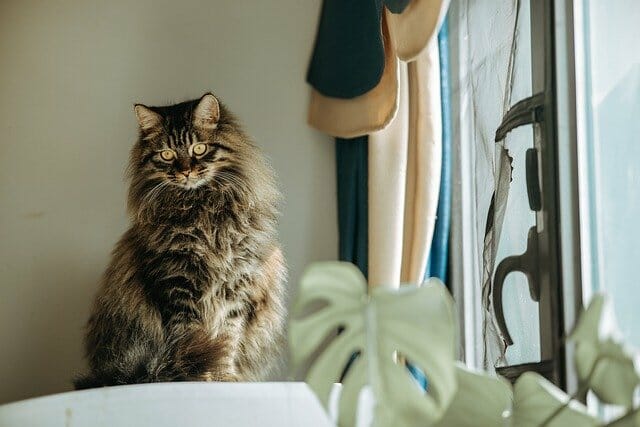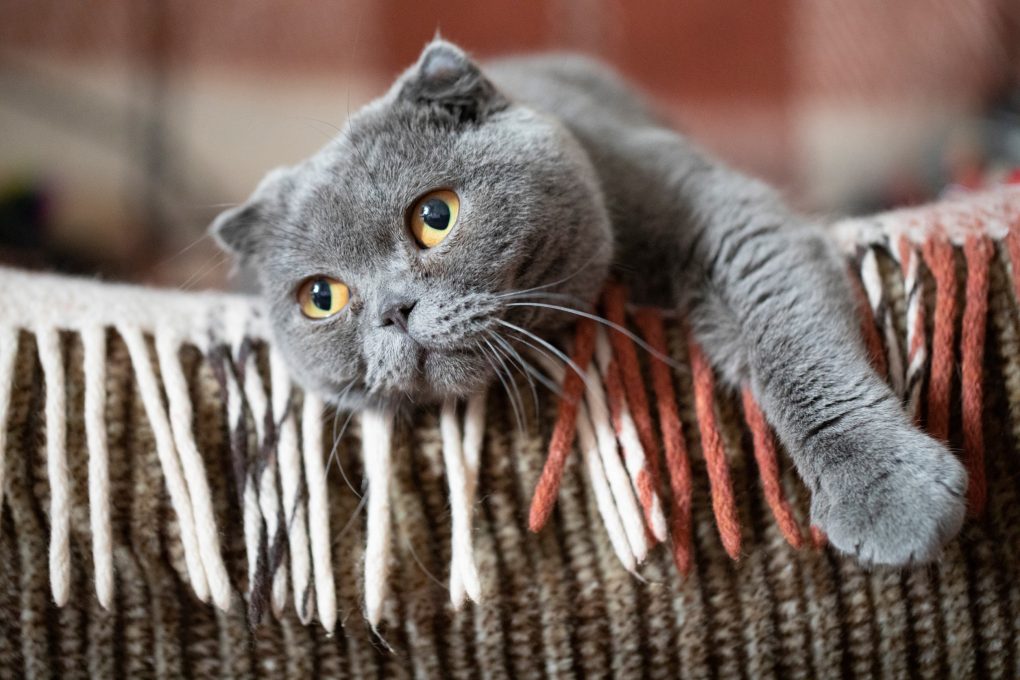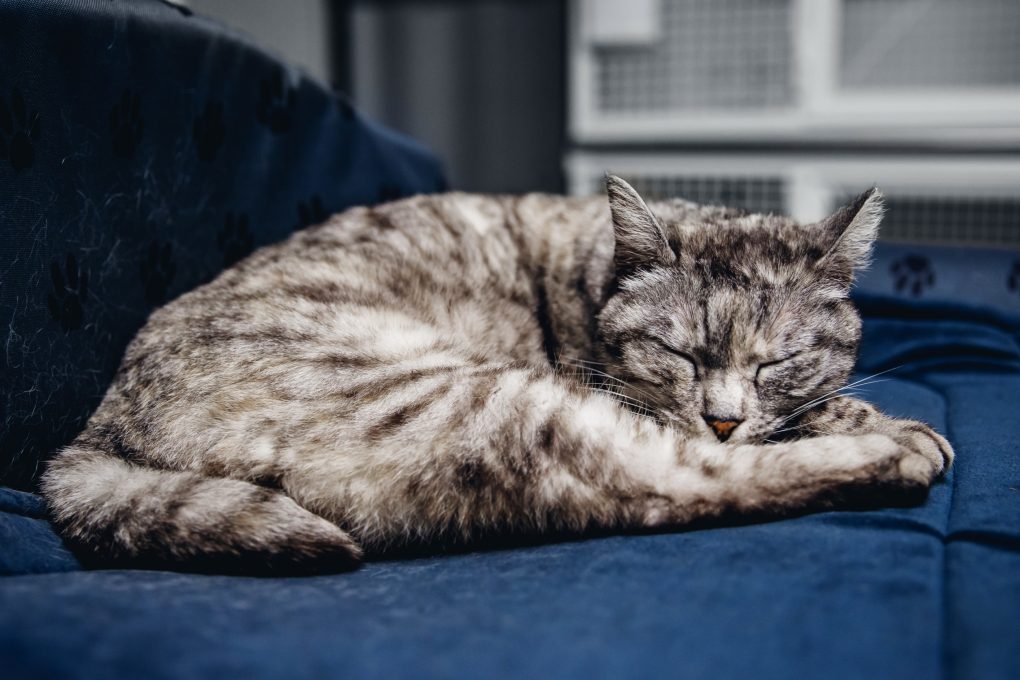Why Does My Cat Have Diarrhea: Common Reasons for Diarrhea in Cats
There could be several reasons why your cat has diarrhea, including dietary issues, parasites, infections, stress, and other medical conditions, such as inflammatory bowel disease, pancreatic insufficiency, and hyperthyroidism.
If your cat’s diarrhea persists for over a day or two, it’s important to take them to the veterinarian to determine the underlying cause and receive proper treatment. In addition, your veterinarian may recommend dietary changes, medications, or other interventions depending on the cause of your cat’s diarrhea.


Table of Contents
Reasons Cats Can Have Diarrhea
Dietary Issues
Dietary issues are one of the most common causes of diarrhea in cats. Cats are obligate carnivores, meaning their digestive system is designed to digest and process animal-based protein. When cats consume a diet unsuited to their physiology, their digestive system can become compromised, leading to gastrointestinal upset and diarrhea.
A sudden change in your cat’s diet can be a major dietary issue that can cause diarrhea. Cats are creatures of habit and can have trouble adapting to a new diet. Switching your cat’s food too quickly can disrupt the balance of its digestive system, causing diarrhea.
This is because a sudden change in diet can lead to an imbalance in gut bacteria, leading to inflammation, intestinal permeability, and diarrhea. Spoiled food is another dietary issue that can cause diarrhea in cats. Cats can be very picky about their food; they may only eat it if they detect spoilage or contamination.
However, if they do consume spoiled food, it can cause gastrointestinal upset and diarrhea. In addition, spoiled food can be contaminated with bacteria, molds, and toxins that can cause inflammation and irritation in the intestinal lining, leading to diarrhea.
Finally, cats can develop diarrhea if they ingest something indigestible or irritating to their digestive system. This can include objects like hairballs, plant material, or foreign bodies. If these objects are not vomited or passed through the digestive system, they can cause inflammation, irritation, and diarrhea.
Parasites
Intestinal parasites are a common cause of diarrhea in cats. Parasites live in or on another organism, known as a host, and derive their nutrition from it. They can infect cats when they consume contaminated food or water or come into contact with infected feces.
Several intestinal parasites can cause diarrhea in cats, including roundworms, hookworms, tapeworms, and protozoans like Giardia and Coccidia. These parasites can infect the intestinal tract, leading to inflammation and irritation, which can cause diarrhea.
When a cat is infected with intestinal parasites, the parasites can cause damage to the lining of the intestines, leading to an inflammatory response. This inflammatory response can cause fluid to leak from the intestines into the feces, leading to diarrhea. Additionally, some parasites can release toxins that further irritate the intestines, exacerbating diarrhea.
Symptoms of a parasitic infection in cats can include diarrhea, vomiting, weight loss, and a decreased appetite. If left untreated, these parasites can cause significant damage to a cat’s digestive system, leading to chronic diarrhea and malnutrition.
Treatment for parasitic infections in cats typically involves medications that are designed to kill the parasites. These medications may need to be administered for several weeks to ensure that all of the parasites are eliminated. In addition to medication, it’s important to practice good hygiene, such as cleaning litter boxes and washing hands regularly, to prevent the spread of parasites to other cats and humans.
Infections


Infections can cause diarrhea in cats when bacteria, viruses, or fungi invade the intestinal tract, leading to inflammation and irritation that can cause diarrhea. In addition, several types of infections can cause diarrhea in cats, including bacterial infections such as Salmonella and E. coli, viral infections such as Feline Infectious Peritonitis (FIP), and fungal infections such as Histoplasmosis.
Bacterial infections are a common cause of diarrhea in cats. These infections can occur when cats consume food or water contaminated with bacteria or come into contact with infected feces. Once inside the cat’s digestive system, the bacteria can multiply and cause damage to the intestinal lining, leading to inflammation and diarrhea.
Viral infections such as FIP can also cause diarrhea in cats. FIP is caused by a coronavirus that affects the immune system and can cause inflammation throughout the body, including the digestive system. In addition, cats with FIP may experience diarrhea, vomiting, and weight loss, among other symptoms.
Fungal infections such as Histoplasmosis can also cause diarrhea in cats. This infection is caused by a fungus found in soil and bird droppings. When cats inhale the spores of this fungus or consume contaminated food, they can develop a fungal infection that can cause diarrhea, vomiting, and weight loss.
Symptoms of infections that cause diarrhea in cats can include vomiting, fever, lethargy, and decreased appetite. If left untreated, these infections can cause significant damage to a cat’s digestive system, leading to chronic diarrhea and malnutrition.
Treatment for infections that cause diarrhea in cats typically involves medications such as antibiotics, antivirals, or antifungals, depending on the type of infection. In addition, supportive care, such as fluids and nutrition, may sometimes be necessary to help the cat recover.
Stress
Stress can cause diarrhea in cats by disrupting the balance of hormones and chemicals in their bodies, which can affect the function of the digestive system. Cats are sensitive animals and can experience stress from various factors, including environmental changes, social interactions, and health issues.
When a cat experiences stress, it can trigger a cascade of hormonal and chemical changes in its body, including the release of adrenaline and cortisol. These hormones can affect the function of the digestive system by reducing blood flow to the intestines and increasing contractions in the muscles that move food through the digestive tract.
Stress can also affect the balance of beneficial bacteria in the gut, leading to an overgrowth of harmful bacteria that can cause diarrhea. This is because stress can reduce the production of antibodies and other immune system components that help to keep the digestive system healthy.
Symptoms of stress-related diarrhea in cats can include vomiting, decreased appetite, and changes in behavior, such as hiding or becoming aggressive. If untreated, stress-related diarrhea can lead to dehydration, weight loss, and other health issues.
Treatment for stress-related diarrhea in cats typically involves identifying and addressing the underlying cause of stress. This may involve changing the cat’s environment, such as providing a quiet, comfortable space to retreat to or reducing exposure to stressful situations, such as loud noises or unfamiliar animals.
In addition to environmental changes, other treatment options for stress-related diarrhea may include medications or supplements that help to soothe the digestive system, such as probiotics or anti-diarrheal medications.
Medical Conditions


Several medical conditions can affect the digestive system, liver, pancreas, and other organs involved in digestion and absorption of nutrients, thus, causing diarrhea in cats.
One common medical condition that can cause cat diarrhea is inflammatory bowel disease (IBD). IBD is a condition where the cat’s immune system mistakenly attacks the intestinal lining cells, leading to inflammation and irritation that can cause diarrhea. Other symptoms of IBD may include vomiting, weight loss, and decreased appetite.
Another medical condition that can cause diarrhea in cats is pancreatitis. Pancreatitis is a condition where the pancreas becomes inflamed, leading to the disruption of the digestive enzymes that are necessary for the proper digestion of food. This can cause diarrhea, vomiting, and abdominal pain.
Liver disease is another medical condition that can cause diarrhea in cats. The liver plays a crucial role in the digestion and metabolism of nutrients. However, when it is not functioning properly, it can lead to various symptoms, including diarrhea, vomiting, and jaundice.
Hyperthyroidism, a condition where the thyroid gland produces an excess of thyroid hormones, can also cause diarrhea in cats. This is because the excess thyroid hormones can affect the function of the digestive system, leading to diarrhea and other gastrointestinal symptoms.
Other medical conditions that can cause cat diarrhea include kidney disease, gastrointestinal tumors, and certain infections. Symptoms of medical conditions that cause diarrhea in cats can vary depending on the underlying cause. Treatment for such conditions typically involves medications, dietary changes, or other treatments depending on the specific condition.
